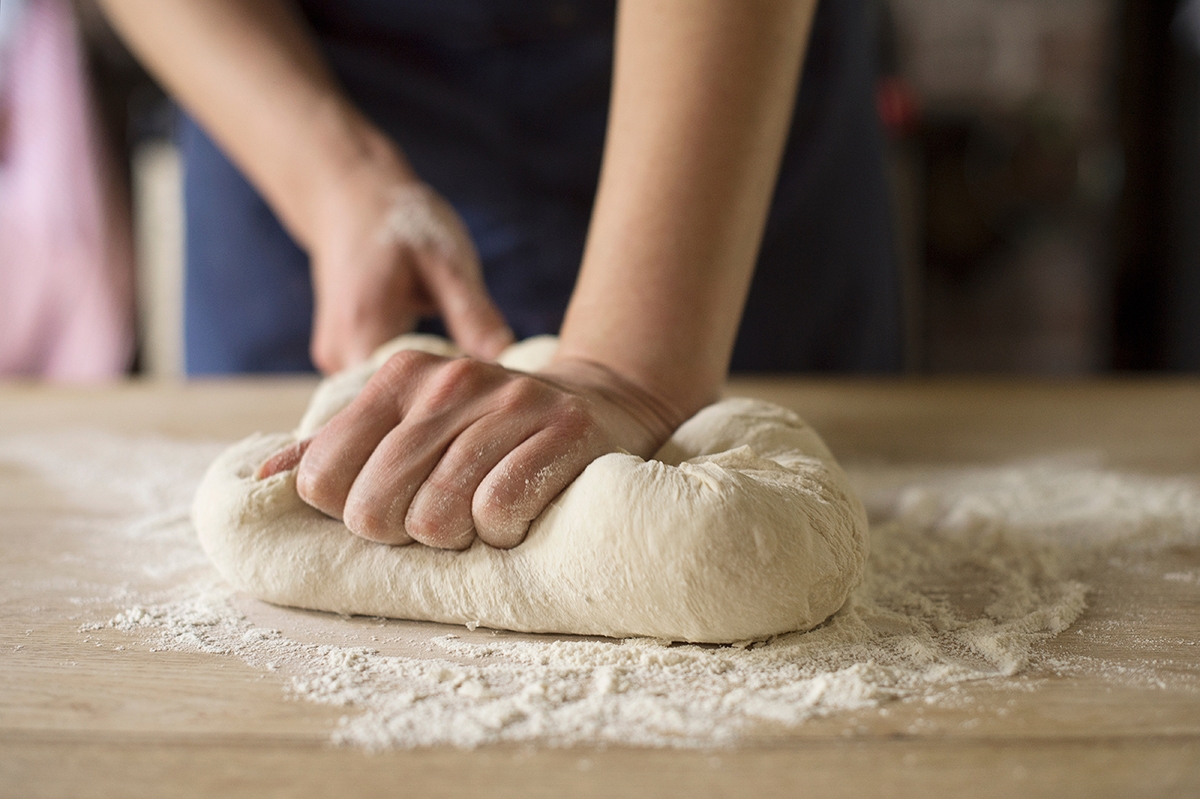Looking back on my 18 years of parenting — which started, to date myself, even before “parenting” was acceptable to use as a verb — I’ve done a lot right, and I’ve done a lot wrong. I apparently never adequately reinforced the whole “dirty socks go in hamper” idea, and some future roommate or partner is going to find that repulsive. I yell too much, for sure, and my kids are intimately familiar with permutations of profanity that would be welcome on the deck of any respectable pirate ship. And even with six kids, I never got the hang of the whole Bridgerton-esque social maneuvering/playdate scheduling, and moreover, sort of don’t care enough about it and have more of a “que sera, sera” attitude.
But one of the best things I’ve done as a parent has been to guarantee that carbohydrates occupy a permanent place of honor in my family’s life — by which I mean, we make our own challah every Friday.
I want to be totally clear that I am not a baker/cook/chef. At all, sadly. I have about four go-to dishes under my belt that people like, and other than that, cooking is generally not a skill set I am fortunate enough to possess. And as I have discovered, “not being a cook” extends to my abilities regarding any activity involving the oven, whether it’s baking or Shrinky Dinks.
Get Kveller's beautiful, step-by-step guide to experiencing Shabbat on your own terms. Order The Kveller Shabbat Guide here.
My lack of experience was actually part of what motivated me to start making challah every week: I saw it as something that I could try to rectify. And hey, everyone loves bread. The other part of what motivated me to take on yet another weekly responsibility, though, was something more abstract that I wanted to give my kids.
My Jewish background is pretty solid. Being Jewish is a crucial part of who I am as a person, as a parent and as a human. I grew up in a home with two Jewish parents, both of whom were very Jewishly involved in our local community. We lit Shabbat candles, had Friday night dinner and went to synagogue on Shabbat mornings, but we never made challah. Sure, we ate challah every week, but never challah that we’d made with our own hands.
It’s that “with our own hands” component that brought me to make the decision to start baking it with my kids every week. Because when I looked back at my positive memories of being Jewish as a child — you know, the building blocks for why I decided to make it such a huge part of my life as an adult — I realized that my “core” memories were sensory ones.
My childhood Jewish memories consist of appreciating beautiful and ephemeral moments infused with “doing Jewish.” I’m thinking of the steam rising up from my soup to my cold face as I sat at a cold October sukkah dinner in our backyard, looking up at the stars through the bamboo sticks of the roof. I remember the sound of the shofar, piercing and otherworldly, as I attempted to peer through the forest of tall adults at Rosh Hashanah services. I remember the golden glow of Hannukah candles, each night growing stronger and stronger.
Each season, for me, is stickily inextricable from being Jewish. I can’t think of fall without remembering throwing bread into the local stream for tashlich, or of mid-winter just before spring without the crumbly taste of hamantaschen. And that sticky factor comes from the way that being Jewish and the calendar — months and days and weeks — are inextricably linked to things that we can do as Jews to mark that time.
While I’m not always the best parent, I’m definitely a thoughtful parent who tries to evaluate what I am doing with my kids and why. And in thinking over ways to plant seeds of a Jewish life in my kids, I realized that just as I need to create a home for my children, literally and metaphorically, I need to make my children feel at home in being Jewish. And I can do that by giving them experiences, and by doing them in a regular rhythm of the calendar and time. And while young children may not appreciate the multifaceted poetry of the liturgy in synagogue, they can definitely connect to sinking their hands weekly into a playdough-like substance that turns into something delicious.
So every week, for a few years now, my daughters and I make challah on Fridays (I only regret that I didn’t start doing this with my high school sons, who are now too deep in stress to be a regular part of the program), to the point where it’s a habit we’ve created. One daughter helps me to make the dough in the morning before she gets on the school bus, and the other daughters, who get home early on Fridays, knead and braid and put in the raisins (OK, let’s be honest, chocolate chips). Making the challah is a physical signal to all of us that Shabbat is coming — that this day of the week approaching is different from the rest. And by participating in doing it, it is an implicit signal to my children that they play a pivotal part in bringing in Shabbat. Plus, despite my lack of baking experience, it’s freaking delicious and puts any store-bought challah to shame.
We were away for Thanksgiving weekend, and had to improvise our Friday night without our homemade challah. When we lit the candles, we missed our homemade challah like we were missing a beloved family member at the table. And that was how I knew I’d done something right.








